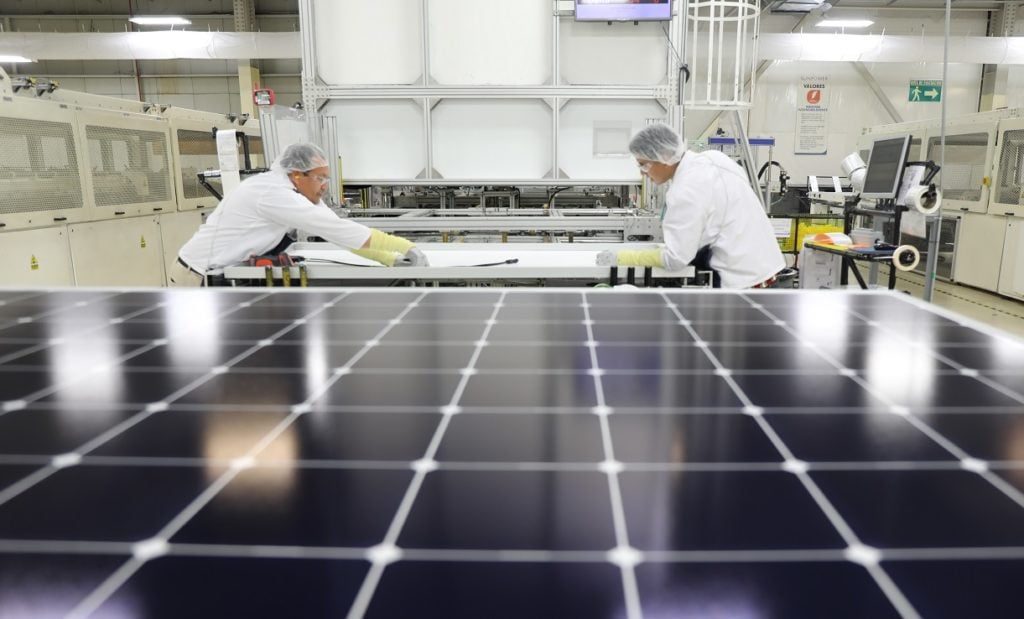
Singapore-headquartered solar manufacturer Maxeon has posted module shipments of just 211MW in the fourth quarter of 2024, driving a year-end revenue of less than half of what was reported in 2023.
The company’s module shipments are broadly in line with the 199MW shipped in the third quarter of this year, but a notable year-on-year decline from the 653MW sold in the fourth quarter of 2023. From 2023 to 2024, the company’s total module shipments more than halved, from 2.9GW to 1.4GW.
Try Premium for just $1
- Full premium access for the first month at only $1
- Converts to an annual rate after 30 days unless cancelled
- Cancel anytime during the trial period
Premium Benefits
- Expert industry analysis and interviews
- Digital access to PV Tech Power journal
- Exclusive event discounts
Or get the full Premium subscription right away
Or continue reading this article for free
Maxeon suggested that much of this decline stems from the US Customs & Border Protection’s (CBP’s) detention of its modules made in Mexico at the US border.
Last month, CBP denied Maxeon’s protest against the detention, which has seen shipments of Maxeon 3, Maxeon 6 and Performance 6 modules detained relating to the enforcement of the Uyghur Forced Labor Prevention Act (UFLPA). While Maxeon has consistently argued that its manufacturing chain is in full compliance with the UFLPA, and that it has submitted documentation to prove this, CBP has now held the modules for ten months.
“CBP has neither cited any evidence nor alleged any non-compliance with the UFLPA on our part, yet it continues to unjustifiably block our products, causing material disruption to our business, our customers, and the US renewable energy sector,” said Maxeon CEO George Guo.
“We believe these actions are without merit and have commenced a legal action to contest CBP’s decision at the US Court of International Trade, demonstrating that our legacy supply chains are fully UFLPA-compliant.”
The ongoing dispute has cut the company’s module sales in half, with most of the decline in sales seen in the third and fourth quarters of this year, after the CBP detention. This trend is shown in the graph below.
Many of the company’s poor financial metrics at the end of 2024 stem from this inability to sell modules in the US. Quarterly revenue fell from US$227.6 million in the third quarter of 2023 to US$48.8 million in the fourth quarter, while the gross profits of US$78.1 million in 2023 have become gross losses of US$249.4 million in 2024.
Perhaps most strikingly, the company’s operating expenses have shrunk, quarter-on-quarter, and remained steady, year-on-year, highlighting that the losses stem from an inability to generate revenue from module sales, as opposed to ongoing expenses associated with module production. Operating expenses only increased marginally from one year to the next, from US$297.3 million in 2023 to US$327.2 million in 2024, while operating expenses more than halved between the third and fourth quarters of 2024, from US$153.2 million to US$63.7 million.
“Despite continued market uncertainties, Maxeon remains committed to fiscal discipline and strengthening our balance sheet,” explained CFO Dmitri Hu. “Earlier this year, we concluded divestment of the company’s assets in Philippines, as well as its businesses outside of the US. These divestments contributed liquidity to support our operations and drive our ongoing business transformation.”
However, Hu also noted that the company would not be making forecasts for its upcoming financial performance, and that, moving forward, it will announce its financial results every six months, rather than on a quarterly basis.






